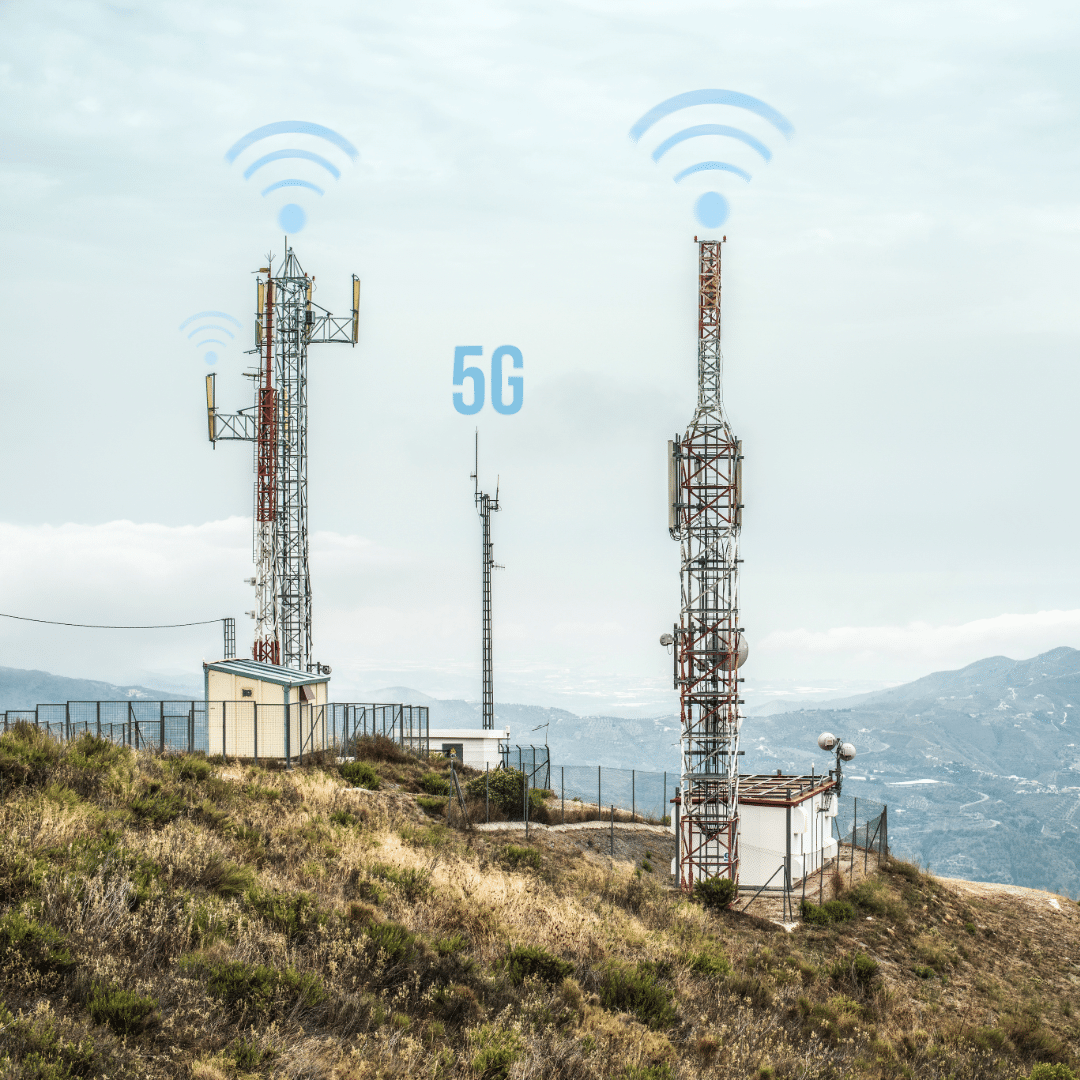
5G Base Station Achieved on an Embedded PC
Posted on August 6, 2025
Wireless coverage is usually very infrastructure-dependent, with large servers and transmitting stations required to extend access. But communication standards have been getting more efficient, and embedded computers have been growing more powerful.
As a result, two leading industry leaders have managed to demonstrate an incredible milestone – a 5G base station operating on a single embedded computer.
Why is this a big deal? What are the implications of such a technology? Here is an overview.
The Wireless Conundrum
Wireless communication technologies are always more convenient for IoT or Edge computing, or for deploying embedded computers in general. The thing is, while it is easy for “client” computers to use, it requires quite a bit of setup from the server side.
That is usually not a problem when dealing with wireless networks for entire city blocks, where massive servers are set up at high expense to cater to these needs. But what if you want to set up small-scale private networks for edge applications?
There was no easy solution. Until now.
5G Station on a Board
SolidRun is a well-known manufacturer of single-board computers (SBC), especially for network edge applications. It partnered with Amarisoft, a creator of software-based wireless network stacks, to develop a solution for deploying 5G networks efficiently.
By running the Amarisoft 5G stack on a custom-built x86 computer, they were able to achieve a 100MHz bandwidth 5G base station without any external accelerators.
This means no external GPUs, no FGPAs, nothing like that. Just a power-efficient SBC running a virtual 5G stack on its own. This solution runs on an AMD Ryzen V3000 processor, once again demonstrating the company’s success in the embedded and enterprise space.
What Is the Use of This Technology?
Running a 5G stack on a single board computer is neat and all, but does it have any practical uses?
It actually does. There are many scenarios where organizations may want to deploy small-scale local networks, either due to security reasons or simply because of the lack of good coverage. These micro network deployments have traditionally been difficult to implement due to the technological complexities involved, not to mention the expenditure of running a full-stack server.
But by proving that a 5G base station can be run on an easily deployed embedded computer, SolidRun and Amarisoft have paved the way for such tactical networks to be set up easily.
The applications for this are numerous. Many companies require private networks for their IoT setups, especially for facilities like factory floors or warehouses where external network penetration might not be that good. Sometimes it is also for security reasons, as a local intranet being run on your own stack is far more protected from unverified access.
There is also the defense sector that needs the ability to deploy these wireless networks in any location without relying on the infrastructure. Not to mention using it for testing and research.
Is This Going to Become the Standard for 5G Infrastructure?
Not quite. While large rack servers are expensive to set up, they are also the most cost-effective solution at scale, which means they would still be preferred for large-scale implementations of wireless networks.
At the same time, the ability to deploy a 5G base station on an embedded PC is more convenient for smaller-scale networks. These deployments are also more energy efficient, as they run on an x86 AMD chip without using any power-hungry GPU for their computations. The resultant bandwidth is limited, but small networks are limited by speed rather than bandwidth.
While the technology is currently just a proof-of-concept, in time, we will see such network computers being sold directly. This will let companies roll out private 5G networks out of the box, opening up new possibilities for Edge computing and IoT.
Contact Global American today to learn more about our PCs with 5G compatibility!
